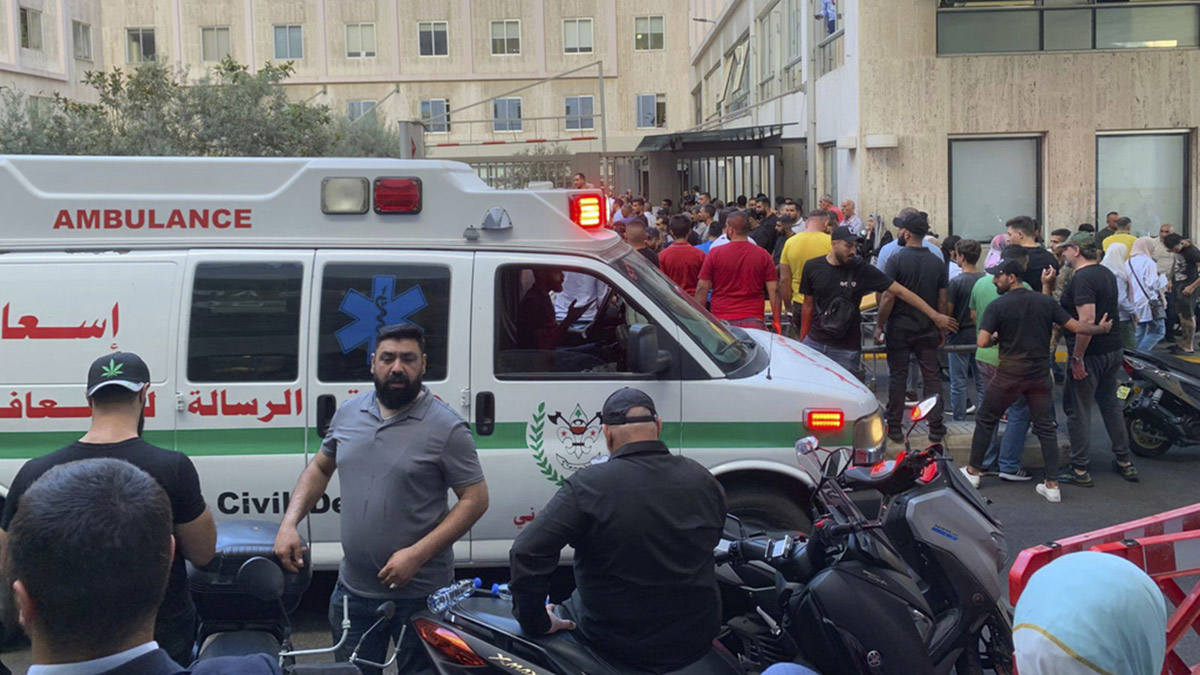In all probability, the Israeli intelligence’s recent sabotage of Hezbollah’s communication infrastructure represents a profound challenge for both Hezbollah and its principal backer, Iran. This operation not only exposes significant vulnerabilities within Hezbollah’s operational security but also casts a shadow on Iran’s ability to effectively support and manage its regional proxies. The implications of this sabotage extend far beyond the immediate impact on Hezbollah revealing critical weaknesses in Iran’s strategic apparatus and influencing the broader geopolitical landscape of West Asia.
On September 18, a second series of deadly explosions rocked Hezbollah strongholds in Lebanon, killing 20 and injuring over 450. The blasts, caused by rigged walkie-talkies, occurred just a day after a separate attack involving exploding pagers left 12 dead and more than 2,800 injured. Both attacks, largely blamed on Israel, have heightened concerns of a looming war between Israel and Hezbollah. Despite diplomatic efforts by the US and UN to defuse the situation, fears of an all-out conflict are mounting, with world leaders voicing alarm over the rapidly deteriorating situation.
A strategic defeat
The sabotage operation, which involved planting explosives inside Hezbollah’s two-way radios and pagers, had devastating effects. These attacks represent a significant breach in Hezbollah’s operational security undermining their ability to coordinate and execute military strategies effectively. The loss of these communication tools disrupts Hezbollah’s ability to relay commands, coordinate field units and manage tactical responses leading to operational paralysis and a long-term challenge in rebuilding a secure communication network.
Iran’s oversight and technological shortcomings
The operation highlights a critical vulnerability in Iran’s oversight of Hezbollah’s security and technological capabilities. As Hezbollah’s primary backer, Iran has provided the group with advanced weaponry, training and intelligence support. The ease with which Israeli operatives infiltrated and rigged Hezbollah’s communication devices is a tight slap on Iran’s support towards the terror organisation and revealed gaps in the security protocols and technological standards that Iran in general might adhere to.
Impact Shorts
More ShortsThe success in these operations showcase the technological and intelligence advantage of the country that orchestrated it over Iran. There is no official confirmation so far although the very nature and intensity points out to Israel but the ability of a foreign intelligence agency to remotely detonate communication devices displays a level of sophistication that not only outstrips Iranian technology and support exposing a significant technological gap and but also undermines Iran’s image as a regional power.
Proxy weaknesses and regional influence
Hezbollah’s reliance on Iranian support and its role as a key proxy force in the region make the sabotage operations significant blow to Iran’s broader regional strategy. The effectiveness of Iran’s network of militias and proxy forces is deeply intertwined with Hezbollah’s operational capabilities. In this scenario, the substantial setback that Hezbollah suffered within such a short time could have far-reaching implications for Iran’s influence and strategic positioning in West Asia.
The exposure of Hezbollah’s vulnerabilities highlights potential weaknesses in Iran’s network of allied militias. Groups supported by Iran, such as Hamas and the Houthis, might perceive these events as indicative of broader vulnerabilities in Tehran’s ability to protect and manage its proxies. This perception could erode confidence among Iran’s regional allies impacting Tehran’s ability to project power and maintain its influence.
Iran’s prestige and ability to project power are now at stake, potentially prompting Tehran to reassess its support and management of Hezbollah and other proxy forces. Going ahead, Iran would naturally invest in more secure and advanced communication systems, enhance cybersecurity measures and improve oversight of its military support operations in response to these setbacks and prevent similar incidents in the future.
Whatever may be its rhetoric in front of the world, Tehran is definitely worried that the successful disruption of Hezbollah’s communication infrastructure could shift regional dynamics and influence the behaviour of other regional actors. The perception of Israeli superiority in intelligence and cyber capabilities might affect the strategic calculations of countries and groups interacting with Iran and its proxies irrespective of whether there is an official confirmation or not. This shift could lead to realignments and new strategies among regional players highlighting the growing importance of cyber and electronic warfare in modern military strategy.
A complex fallout
The sabotage of Hezbollah’s communication infrastructure represents a multifaceted challenge for both Hezbollah and Iran. The immediate operational disruptions for Hezbollah combined with the broader implications for Iran’s strategic standing and reputation reflect the complexity of the situation. As both Hezbollah and Iran grapple with the consequences of these operations, the geopolitical landscape in West Asia will continue to evolve. The double blow to Iran’s support and Hezbollah’s capabilities illustrates the intricate interplay of military strategy, technological advancement and regional power dynamics in contemporary conflict.


)

)
)
)
)
)
)
)
)



